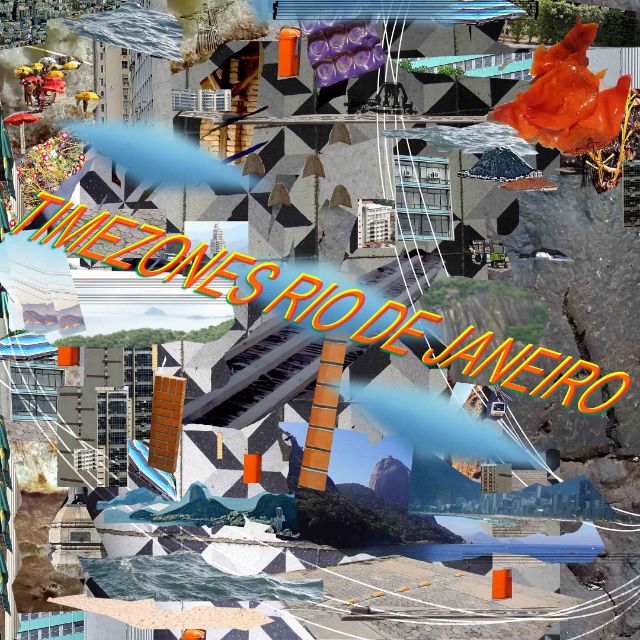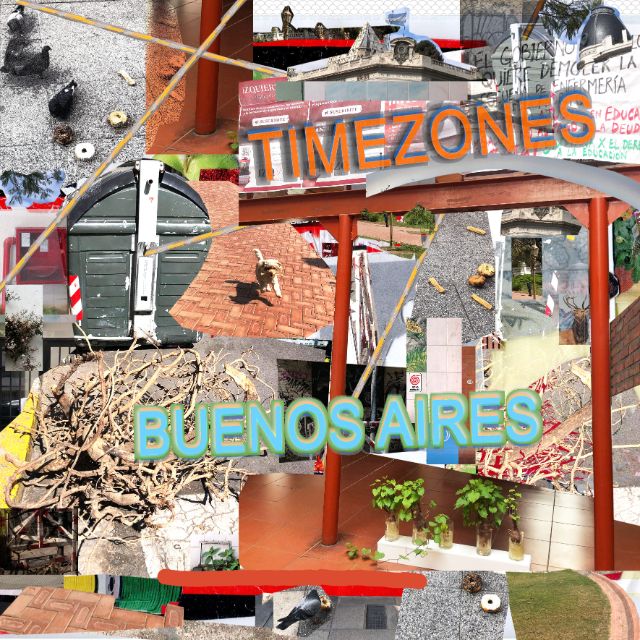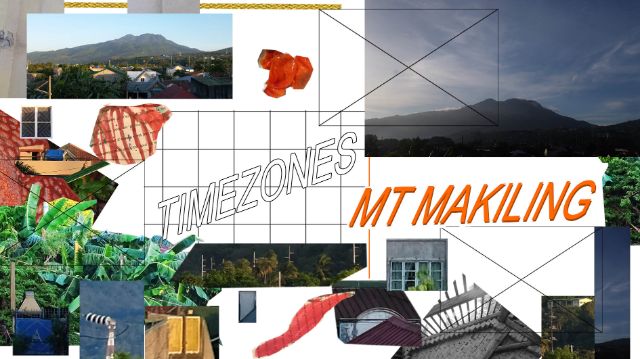
Norient TIMEZONES
TIMEZONES PODCAST-SERIE AUF RADIO X
Die Podcast-Reihe TIMEZONES erkundet die vielfältigen Realitäten von Künstler*innen und ihrer Praktiken weltweit und stellt die Frage: Was bedeutet es heute, in verschiedenen Ländern, Städten und Kontexten im Bereich Kultur und Kunst zu leben und zu arbeiten? Die Reise geht von Nairobi über Rio de Janeiro bis nach Beirut und Mount Makiling auf den Philippinen / die Ukraine und verarbeitet die Gedanken und Stimmungen der Künstler*innen, ihre sozialen, politischen und intellektuellen Realitäten und ihre(Lebens-) Philosophien zu künstlerischen Audiocollagen.
TIMEZONES spielt dabei mit Formaten und Inhalten: der Podcast bewegt sich zwischen Journalismus und Experiment, Dokumentation, Ethnografie, Fiktion, Klangkunst oder Improvisation. Georgrafische Grenzen, Zeitzonen, Genres und Praktiken sollen überschritten und mit neuen künstlerischen Formen des Austauschs, des Zuhörens und des Erzählens experimentiert werden. Gemeinsam mit lokalen Produzent*innen und Künstler*innen entstehen dabei sehr persönliche Portraits und aktuelle Geschichten aus Städten rund um den Globus, die einen sehr subjektiven Eindruck in das weltweite und aktuelle Musik-und Kunstgeschehen ermöglichen.
TIMEZONES ist ein gemeinsames Projekt des Goethe-Instituts und Norient, dem weltweiten Redaktionsnetzwerk für zeitgenössische Musik- und Medienkulturen.
Radio X ist neu als Partner mit an Bord: Als Weiterführung der im 2022 gestarteten Sendereihe airtime!, die künstlerischen Stimmen aus dem Globalen Süden und Osten Gehör verschafft, strahlen wir einmal im Monat eine Podcast-Folge aus.
26. April NAIROBI: Nairobi’s Next Generation Music Producers and Performing Artists Speak Out
24. Mai BEIRUT: Traces of a City – A Pod Poem
21. Juni RIO DE JANEIRO: Staying Creative Between Beauty and Chaos in Rio de Janeiro
19. Juli MOUNT MAKILING: Ears on/of Mount Makiling
23. August BUENOS AIRES: Relations Condensed in Practice
ENG:
The TIMEZONES podcast series plunges into the world of artists and their practices, asking: what does living and working in culture and the arts involve in different countries, cities, and contexts today? The experimental journey goes from Nairobi via Rio de Janeiro to Beirut and Mount Makiling in the Philippines/Ukraine and brings the he artists’ thoughts on their moods, their social, political, and intellectual realities and their philosophies (of life) into experimental audio collages.
The TIMEZONES podcasts run the gamut of formats and content, from straight journalism to experimental and documentary approaches, ethnography and fiction, sound art, and improvisation. The series endeavors to create new artistic forms of storytelling, listening and exchange across the boundaries of geography, time zones, genres, and practices. Together with local producers and artists, the podcast creates very personal portraits and current stories from cities around the globe, which allow a very subjective impression of the worldwide and current music and art scenes.
The Timezones Podcast Series is co-initiated and co-produced by the Goethe-Instituts and Norient, the worldwide platform and network for contemporary music and media cultures.
Radio X is now on board as a partner: As a continuation of the series airtime!, which was launched in 2022 and which makes artistic voices from the Global South and East heard, we broadcast a podcast episode once a month.
April 26, NAIROBI:
May 24, BEIRUT: Traces of a City – A Pod Poem
June 21, RIO DE JANEIRO: Staying Creative Between Beauty and Chaos in Rio de Janeiro
July 19, MOUNT MAKILING: Ears on/of Mount Makiling
August 23, BUENOS AIRES: Relations Condensed in Practice

TIMEZONES: Staying Creative Between Beauty and Chaos in Rio de Janeiro
Episode 5 der TIMEZONES Podcast-Reihe auf Radio X, co-produziert von Norient und dem Goethe Institut: In dieser Folge wird untersucht, wie Rio de Janeiro seine Musik im Laufe der Jahrhunderte geformt und seine Zukunft durch den Blickwinkel der Künstler:innen, Kreativschaffenden und Gelehrten gestaltet. von Danielle Bürgin
23.06.21 Rio de Janeiro
Staying Creative Between Beauty and Chaos
Hinter den Postkartenlandschaften und den klischeehaften Bildern von Karneval, Stränden und schönen Frauen verbirgt sich eine rätselhafte und teilweise kaputte Stadt. Rios musikalische und kreative Identität, wie Samba und Karneval, scheint sich ständig zu wandeln und mit traditionellen Formen zu flirten. Doch gleichzeitig steckt eine Geschichte von Kämpfen dahinter, die mit afro-brasilianischen musikalischen und religiösen Ausdrucksformen verbunden ist.
In einem herausfordernden Moment der Krise - bedingt durch die Pandemie und durch die politische Situation - verbinden Künstler:innen in Rio diese Identitäten. Ziel ist es, am Leben zu bleiben - gesund und vor allem kreativ zu bleiben.
Hör die weitere Folgen von TIMEZONES auf Radio X an.
English:
This episode of the TIMEZONES-Podcast-Series explores how Rio has shaped its music over the centuries and invented its future through the vision of artists, creators, and scholars. Behind the picture-postcard landscapes and the stereotypical images of carnival, beaches, and beautiful women lies an enigmatic and broken city: Rio de Janeiro.
Rio’s musical and creative identity, such as samba and carnival, seems to be ever transforming and flirting with traditional forms, yet at the same time, those forms have a history of struggle, intimately connected to Afro-Brazilian musical and religious expressions. In a challenging historical moment of crisis, a pandemic and political ruthlessness, artists in Rio are integrating those identities with the most immediate needs and perceptions of reality. The goal is to stay alive, sane and, most of all, creative.
QUOTES
«This is a Paradise and hell city. It’s beauty and chaos, at the same time. It’s true! Natural beauties, beaches, rivers, mountains and, also, a very huge social clash.» Domingos (Opavivará)
«Samba was persecuted, it was a source of embarrassment for a lot of rich, wealthy, Eurocentric Brazilians, but in many ways, it won out. So a lot of the urban spaces that were designed to keep out Black Brazilians and poor Brazilians became the spaces that are now used for street ‹blocos› (carnival blocks) that are now central to grassroots samba during carnival.» Bruno Carvalho
«Fashion was not something that included us Black people in the scene.» Thaís Delgado
«It’s unbelievable that we have such a fascist dictator in power because that’s what he is. It’s a big lie! They are conservatives, they are racists, they are homophobes, they use the religion to manipulate poor people. They want to destroy everything, they want to sell the whole country, they don’t give a damn to the nature, they don’t give a damn to the indigenous people from Brazil.» Sabrina Fidalgo
«Rio is definitely a spiritual place. Being at the beach, being at the mountains, being around the nature is a very spiritual experience.» Ynaiê (Opavivará)
CREDITS
A podcast by Vivian Caccuri (director, idea, interviews)
Music: Vivian Caccuri, Thiago Lanis
Co-initiated and co-produced by Norient and the Goethe-Institut
Featuring: Thiago Lanis, Domingos Guimaraens and Ynaiê Dawson (Opavivará), Cabelo Cobral Coral, Thaís Delgado, Bruno Carvalho, Sabrina Fidalgo
Bonus Talk: Daniel Limaverde
Go to the TIMEZONES-Podcasts on norient.com





.png/jcr:content/magnolia-medium.png)

